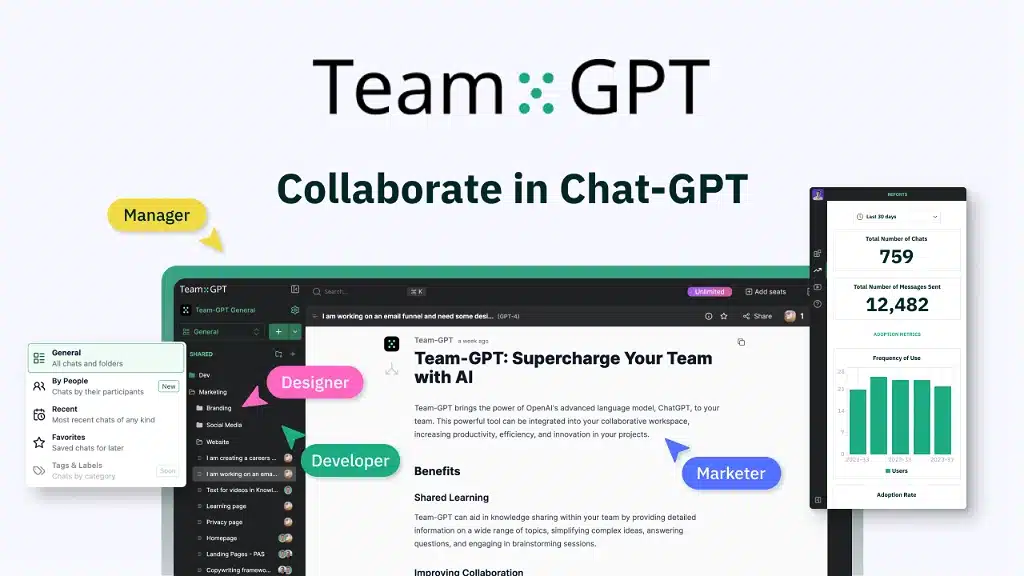In the realm of education, the advent of generative AI has sparked a heated debate: Is AI improving our learning capabilities, or is it undermining our intellectual development? This article explores the role of generative AI in education, addressing common concerns and envisioning its future impact.
AI critics argue that Artificial Intelligence has the potential to oversimplify things, potentially leading to a decline in human cognitive abilities. Is it truly possible for a single algorithm to exert such control over us?
Will AI Make Us Stupid?
Generative AI will affect us and will change us.
However, at the end of the day, humans are inherently complex beings. We live in a three-dimensional world, experiencing a wide range of emotions—love, pain, and more. I don't believe that generative AI systems like ChatGPT can truly encroach upon human feelings, emotions, and experiences. Their role is marginal in this context. While AI can simplify work, education, and communication, life itself remains intricate, and we will not become less intelligent or stupid because of AI.
“Did Google Make Us Dumber? If all the information in the world is at our fingertips, why will we need to remember anything? This was a common refrain in the early days of Google. Rather than making us dumber, Google became such an essential part of our lives—including at work—that it became a verb.”
- Pankaj Chawla in a Forbes Article.
Similarly, as Google has transformed our access to information, generative AI holds the potential not only to alter our learning processes but also to provide novel ways of accessing knowledge. I anticipate that in the near future, people will increasingly turn to AI models over traditional search engines for information retrieval.

Understanding Generative AI's Role in Education
Looking ahead, the future of AI in education appears promising. Tools like ChatGPT have revolutionized how educational content is delivered. They provide customized learning experiences and accessible knowledge. Do you want to learn how to effectively use AI as a teacher?
Elevating Through AI: A Tool for Empowerment
A report from the World Economic Forum finds that AI holds great potential for addressing the gaps global education systems are struggling with.
Generative AI can elevate educational standards by providing tools and resources that were previously inaccessible to underprivileged educators and students. By democratizing access to information, AI in educational settings can level the playing field, allowing a broader range of individuals to reach their potential.
The Amplifying Effect of AI in Education
AI as an amplifier can significantly enhance educational outcomes. For instance, consider a study plan created by a professor from Stanford compared to one from a professor in a remote village. It's likely obvious which plan would traditionally be more robust.
However, imagine if the professor in the remote village had access to AI tools like ChatGPT to create lesson plans. The technology could elevate the entire community by significantly improving the quality of education.
A survey by Forbes advisor showed that more than half of the teachers who responded believe that AI has had a positive effect on the teaching and learning process.
Preparing For the Future With Generative AI in Education
Improving Educator Competence through ChatGPT
How do we transform less effective educators into better ones with the help of ChatGPT? The answer lies in comprehensive GPT education. By equipping educators worldwide with the knowledge and skills to use AI tools, they will be able to better prepare for classes, respond more effectively to student queries, and gain a deeper understanding of their subject matter. Once educators enhance their skills, they are in a better position to elevate the learning experiences of their students.
Having taught Data Science and AI to over 1.4 million online learners for a decade, I've created a FREE interactive ChatGPT course. This course, packed with educational videos and practical exercises, is designed to develop robust AI skills for all users, aligning with the needs of AI in education.

AI Tools for Education
Team-GPT is an AI education tool that transforms collaboration in education with the power of the latest AI models like GPT-4, Google Gemini, Anthropic Claude, and more.
While ChatGPT typically limits students and teachers to 1-on-1 conversations with the AI, Team-GPT allows educational teams to collaborate seamlessly.
Team-GPT facilitates collaboration among classroom teams. Educators, students, and other stakeholders can all enter the platform and start a group chat with ChatGPT in real time. This goes a long way in creating dynamic and inclusive environments for students and their teachers to:
- Learn from each other
- Discover and highlight new concepts
- Explore prompting paths collectively
Check out the 12 best AI tools for teachers.

Responsible Use of AI: A Collective Endeavour
Generative AI in education holds tremendous potential to transform educational landscapes by equalizing opportunities. However, its success hinges on our ability to use it wisely, ensuring it complements rather than replaces human engagement in the learning process.
Responsible AI use involves not only ethical deployment but also strategic integration into educational frameworks. AI should be viewed as a tool to enhance, not replace, the human elements of teaching and learning.

